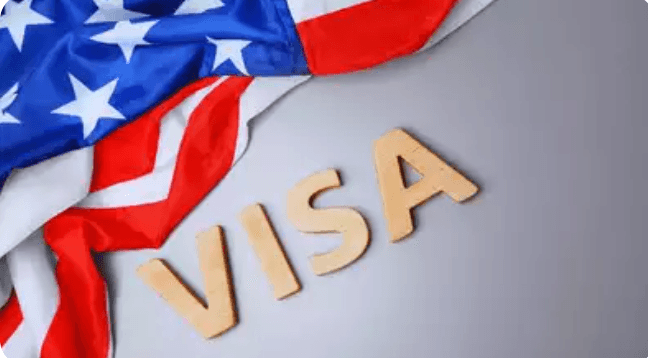The United States Embassy in India has taken a significant step in its ongoing efforts to combat visa fraud by canceling 2,000 visa appointments. This move comes as part of a broader crackdown on fraudulent activities related to visa applications, ensuring that only genuine applicants are granted entry to the U.S. The decision has sparked discussions among Indian visa seekers, particularly students, professionals, and tourists, who are now facing increased scrutiny in the visa application process.

Reasons Behind the Crackdown
The U.S. Embassy has identified a rising number of fraudulent visa applications, with cases involving document forgery, misrepresentation, and unethical practices by agents. To maintain the integrity of its immigration process, U.S. authorities have intensified background checks and implemented stricter policies. Officials have emphasized that this measure aims to prevent individuals from obtaining visas through fraudulent means and to safeguard the credibility of the U.S. visa system.
Impact on Indian Applicants
The cancellation of 2,000 visa appointments has led to uncertainty among Indian applicants. Many individuals who had legitimate travel plans now face delays in their applications. The crackdown particularly affects students applying for F-1 visas, skilled professionals seeking work visas, and families planning visits to the U.S.
For students aspiring to study in the U.S., this action means they must ensure complete transparency in their applications. Institutions and visa consultants have been advising applicants to double-check their documents and provide genuine information to avoid complications.
Measures Taken by the U.S. Embassy
The U.S. Embassy has increased its vigilance by:
- Conducting thorough background checks on applicants.
- Identifying and blacklisting agents involved in fraudulent practices.
- Implementing stricter scrutiny of documents submitted during the visa process.
- Working closely with Indian authorities to address fraudulent cases.
- Enhancing data-sharing mechanisms between the U.S. and Indian immigration authorities to track repeat offenders.
U.S. officials have urged applicants to avoid using unauthorized agents and to apply directly through official channels. They have also reassured that genuine applicants will not face unnecessary difficulties if they follow the correct procedures.
Legal Consequences for Fraudulent Applicants
Individuals caught submitting fraudulent documents or providing false information may face serious legal consequences, including:
- Permanent visa ineligibility for the U.S.
- Legal action under U.S. immigration laws.
- Being flagged in international travel databases, affecting future travel opportunities to other countries.
- Possible deportation if fraud is discovered after entry into the U.S.
Authorities have also warned visa agents against unethical practices, stating that those found guilty of fraud will face legal penalties.
Advice for Genuine Applicants
To avoid complications in the visa application process, the U.S. Embassy recommends that applicants:
- Apply only through official government websites and authorized channels.
- Ensure all documents, including financial statements and educational certificates, are legitimate.
- Avoid using third-party agents who promise guaranteed visas.
- Be honest and transparent during the visa interview.
- Seek guidance from verified educational consultants and legal experts for visa applications.
Experts suggest that applicants should start their visa application process well in advance and be prepared for additional verification steps.
Response from Indian Authorities
The Indian government has acknowledged the concerns of visa applicants and has been working closely with the U.S. Embassy to address issues related to fraud. Indian officials have urged students and job seekers to remain cautious while selecting visa consultants and to verify the legitimacy of agencies offering visa assistance.
Additionally, Indian educational institutions have been advising students to ensure their visa applications are processed through legitimate means, minimizing the risk of rejection due to fraudulent intermediaries. Some universities have also introduced mandatory pre-visa counseling sessions to help students navigate the process successfully.
Future Implications
This crackdown signals a shift toward a more stringent visa approval process for Indian applicants. As the U.S. tightens its immigration policies, genuine applicants must adhere strictly to visa guidelines to avoid delays or denials. The move may also encourage other countries to implement similar measures to combat visa fraud.
For aspiring students, professionals, and travelers, the key takeaway is to follow transparent procedures, avoid shortcuts, and ensure authenticity in all aspects of their visa application process. While this crackdown has caused temporary inconvenience, it ultimately aims to uphold the integrity of the U.S. visa system and ensure that visas are granted to deserving applicants.
Pingback: India Not a Dharamshala': Amit Shah Warns Against Those Crea